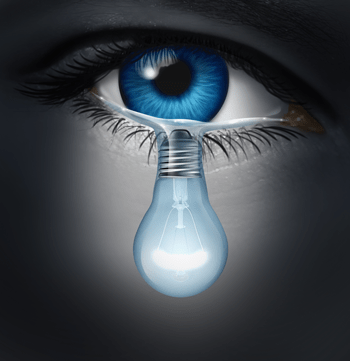 People who suffer from depression often struggle to find good solutions that can bring them real relief. Often, many people find no solution out there works for them at all. However, one solution giving hope to many people with depression is TMS, or transcranial magnetic stimulation.
People who suffer from depression often struggle to find good solutions that can bring them real relief. Often, many people find no solution out there works for them at all. However, one solution giving hope to many people with depression is TMS, or transcranial magnetic stimulation.
What Is TMS Therapy and How Does It Work?
Transcranial magnetic stimulation sounds like a mouthful but it's really a simple procedure. TMS involves the use of magnetic pulses to stimulate nerves and areas of the brain that typically become less active during depression. The procedure is a noninvasive one and doesn't require surgery, drugs, sedation, or anything else.
A credentialed TMS physician will start the process and a professional TMS technician will administer the treatment. The typical TMS session can take about half an hour, and the patient will do it a few days of the week for a period no longer than a month or two.
Different TMS modalities exist and different people require individualized treatment. For that reason, how the process work can have some slight variations from person to person.
What Can TMS Therapy Do for Depression?
TMS helps bring energy back to the parts of the brain that need it most when someone goes through a depressive state. The magnetic pulses help to regulate mood and bring brain activity back into balance.
Many people report excellent results from TMS therapy. Even in cases where TMS wasn't wholly effective, many patients experienced a leavening of their depression symptoms.
Who Can Benefit Most from TMS Therapy?
TMS often comes up for people who have found no luck with traditional depression treatments. For many people, the psychotherapy and antidepressants simply don't work. Treatment-resistant depressive disorders require a different approach.
Typically, doctors recommend patients first go through the normal depression treatments. Nevertheless, people can certainly use TMS procedures to supplement traditional depression treatments. In addition, some people have adverse reactions to medications. In such cases, TMS also represents a good option.
What Risks Come with TMS Therapy?
TMS therapy is a safe treatment solution, but the possibility of side effects does exist. Some of the minor side effects can include headache and lightheadedness. One of the of the uncommon side effects can include some hearing issues. The hearing issues can stem from inadequate ear protection during the sessions.
The rarest but most serious side effect is a possible seizure. Because of these possible reactions, TMS isn't recommended for epileptics or those with a history of head injuries.
A doctor will discuss whether the process is right or not. As the TMS modalities can use different pulse frequencies, patients can have customized treatment tailored to their specific needs.
Why Should You Consider TMS Therapy for Your Depression?
For all the reasons stated, TMS procedures make for an excellent way to combat depression and depressive disorders. For people who feel like nothing works or those who don't like the idea of going on medication, TMS therapies are worth considering. People should do their research and speak with a medical professional about whether TMS procedures can work for them.
